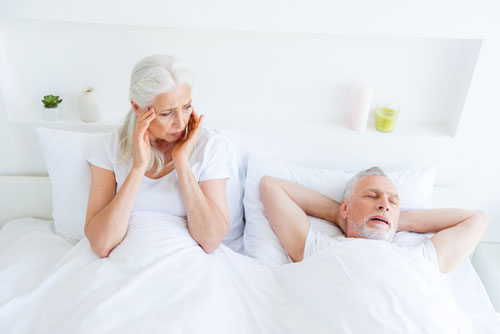Depression is a frustrating illness.
The cause is difficult to pin down. Episodes seem to come and go at random times. The standard treatment, antidepressant drugs, often don’t work.
That’s why a new study is so important.
It pinpoints a surprising cause—and the cure—for many cases of depression, especially those that don’t respond to antidepressants.
Researchers at the Medical College of Georgia at Augusta University looked at 125 patients with depression and how their sleep affected their mood.
The study found that people with treatment-resistant depression—the kind that doesn’t respond to antidepressant drug—often have sleep apnea.[i]
It’s a condition in which breathing starts and stops repeatedly during sleep. This leads to poor rest and daytime drowsiness. And the study found it often has another effect: depression.[ii]
Scientists discovered that treating sleep apnea, often relieves the accompanying depression.
Dr. W. Vaughn McCall was an author of the study. He said researchers “were completely caught by surprise” by the findings. That’s because sleep apnea had not been previously linked to depression.
All patients with treatment-resistant depression should be tested for sleep apnea, he said.[iii]
The Sleep Apnea- Depression Connection
If you suffer from depression, you should make sure sleep apnea is not the cause.
Sleep apnea symptoms include loud snoring, waking up gasping for air, morning headaches, and daytime sleepiness.
You are more likely to have the condition if you:
- Are male.
- Are overweight.
- Are over 40 years old.
- Have a family history of the disease.
- Have a neck that is 17 inches around or bigger (men) or 16 inches and bigger (women).
- Have sinus problems, or nasal obstruction due to allergies or a deviated septum.
If you think you might have apnea, see your doctor. If your apnea is mild, it may be treatable by losing weight, taking precautions to sleep on your side, quitting smoking, or avoiding alcohol.
More serious cases often require a CPAP machine. It’s a device you wear over your nose and mouth while you sleep. The CPAP pumps air into your nose. It keeps your airways from closing.
Editor’s Note: Independent Healing is your number one source for evidence-based natural health solutions. Each month we bring you non-biased, science-backed medical advice from the world’s top researchers. To subscribe, go HERE.
Related Articles
The Best Sleep Position for Good Health
Like this Article? Forward this article here or Share on Facebook.
[i]https://www.sciencedirect.com/science/article/pii/S0022395619302018?via%3Dihub
[ii]https://www.webmd.com/sleep-disorders/sleep-apnea/sleep-apnea
[iii]https://www.eurekalert.org/pub_releases/2019-07/mcog-osa071919.php

